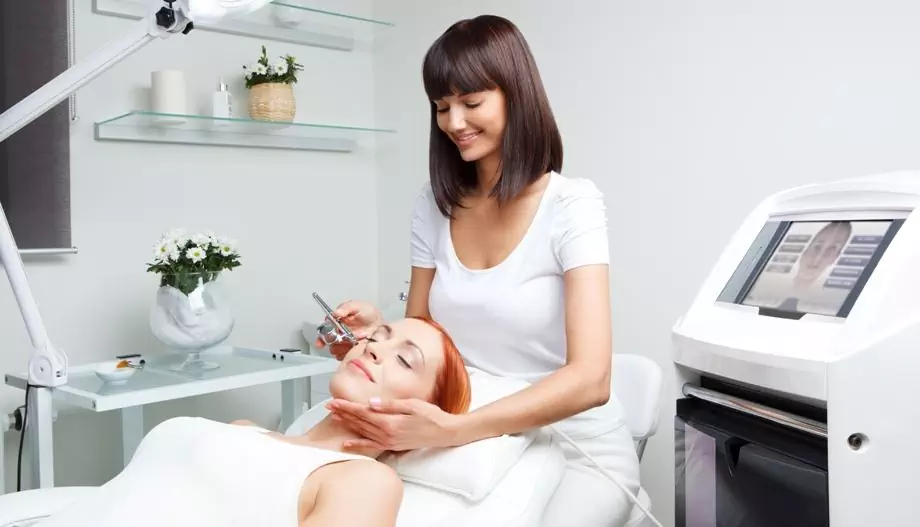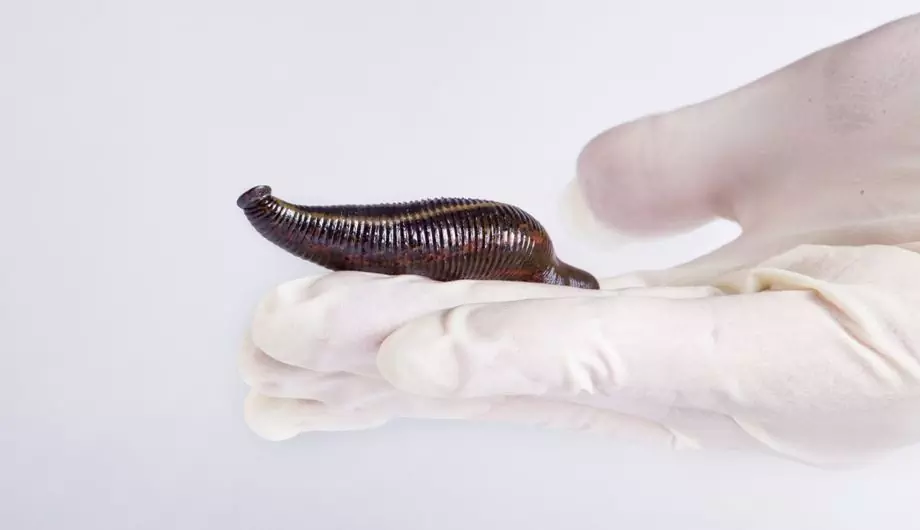- Author Rachel Wainwright wainwright@abchealthonline.com.
- Public 2023-12-15 07:39.
- Last modified 2025-11-02 20:14.
Cosmetologist
A cosmetologist is a doctor who deals with problems of the skin of the body and face. The cosmetologist determines the general condition of the skin and recommends preventive and curative cosmetic procedures. The beautician removes age spots, moles, spider veins, etc.

If necessary, the beautician can refer the patient to other specialists - endocrinologist, dermatologist, cosmetic surgeon.
The education of the cosmetologist allows him to determine the type of patient's skin and prescribe the individual procedures necessary for him. In addition, the cosmetologist knows all skin diseases and deals with their treatment. A competent cosmetologist, according to reviews, will always be able to determine the disease that worries the patient and prescribe adequate treatment.
Currently, the education of a cosmetologist includes, in addition to performing the usual procedures to maintain good skin condition, almost all methods of therapeutic cosmetology in the body and face.
What diseases does the cosmetologist treat?
The services of a cosmetologist include the treatment of acne, acne, acne, acne, as well as the removal of scars on the body and face after surgery, acne and injuries, improving the healing of fresh scars, and removing scars.
The cosmetologist also treats excess hair growth on the face and body using modern methods of hair removal (bioepilation, electrolysis), including in the armpits, bikini area, face and chest.
In addition, the services of a cosmetologist include:
- Diagnosis and treatment of rosacea or rosacea;
- Removal of warts with coagulation, liquid nitrogen;
- Treatment of dry warts (plantar calluses);
- Treatment of demodicosis (skin mite);
- Removal of keratomas, moles, molluscs, papillomas;
- Treatment of corns, calluses, cracks and ingrown nails, medical pedicure;
- Prevention of premature aging (removal of edema, circles under the eyes, smoothing of wrinkles);
- Treatment of age spots by complex bleaching of pigmentation or removal, taking into account the process of pigment formation;
- Cellulite treatment;
- Removal of stretch marks after childbirth;
- Body shaping.
When should you use the services of a beautician?
- When blackheads appear on the skin, enlarged skin pores, coarsening of the skin, which leads to the appearance of blackheads;
- When the skin is flaky and dull, when the skin looks dull;
- In case of burning and itching on the skin after applying cosmetics;
- With redness and inflammation in the form of urticaria in the places where cosmetics are applied;
- With swelling of the eyelids, lips and frequent acne on the skin;
- In case of allergic reactions of the mucous membranes of the nose, throat, palate, with itchy throat and palate, nasal congestion, nasal discharge;
- When dark circles appear under the eyes, edema, mucous discharge in the corners of the eyes, spasmodic pain around the eyes;
- With frequent reddening of the vessels of the eye proteins, the appearance of allergic scaly rashes and barley on the surface of the upper eyelid.
What tests can a beautician require?
The cosmetologist can direct the patient to the following tests:
- General blood analysis;
- General urine analysis;
- Herpetic infections;
- Syphilis;
- Measles;
- Scrapings from the nail and skin for the presence of fungi;
- Scrapings from eyelashes and skin for mites (demodex);
- Herpeviruses (types 1-6) and human herpes virus;
- Allergic panel Ig G;
- Puncture cytology of the skin;
- Immunoglobulin E (IgE);
- Allergic screening (inhalation, mixed adult, mixed children, food).
Types of diagnostics carried out by a cosmetologist
The education of a cosmetologist allows him to carry out the following types of diagnostics:
- Cytology - the study of cell structure for the diagnosis of human papillomavirus, skin cancer, cystic dermatoses, basalioma;
- Rheumatoid factor;
- Microscopy - skin scraping for the diagnosis of scabies, mycoses;
- Histology - skin biopsy for morphological confirmation of the diagnosis;
- Diagnostics of diseases of the pancreas and liver;
- PCR diagnostics to identify skin infections;
- Immunofluorescence study for the diagnosis of autoimmune diseases.
Beautician advice
According to the reviews of cosmetologists, following these simple tips is an excellent prevention against various skin diseases:
- Follow the rules of personal hygiene;
- Before applying makeup, wash your face and hands thoroughly;
- Never let other people use your decorative cosmetics;
- It is better to check it before buying cosmetics. To do this, you need to ask the seller for a clean applicator, and also ask to wipe the packaging hole with alcohol;
- Places where cosmetics are stored must be kept clean;
- Do not expose cosmetics to direct sunlight, observe the recommended storage temperature;
- If you have an eye infection (such as conjunctivitis), do not use eye makeup.
- After you have cured the infection, it is not recommended to use old eye makeup;
- If the color of the cosmetics has changed or an unpleasant odor appears, cosmetologists advise against using it. This may mean that the preservatives contained in cosmetics no longer fight bacteria;
- Clean applicators and cosmetic brushes regularly;
- Do a practice test before using cosmetics. Apply a small amount to the inside of your elbow. If no changes have occurred within two days, cosmetics can be used, but if redness, itching, swelling appear on the skin, then this remedy is not suitable for you;
- Perfume should not be applied to the skin, but to clothing. This will help avoid possible reactions to flavorings;
- Remember that labels on cosmetics "dermatologically tested", "hypoallergenic", "suitable for sensitive skin" do not guarantee your safety. Some companies test, while others do not. There are no rules as to whether this information should be indicated on the label.
Found a mistake in the text? Select it and press Ctrl + Enter.






